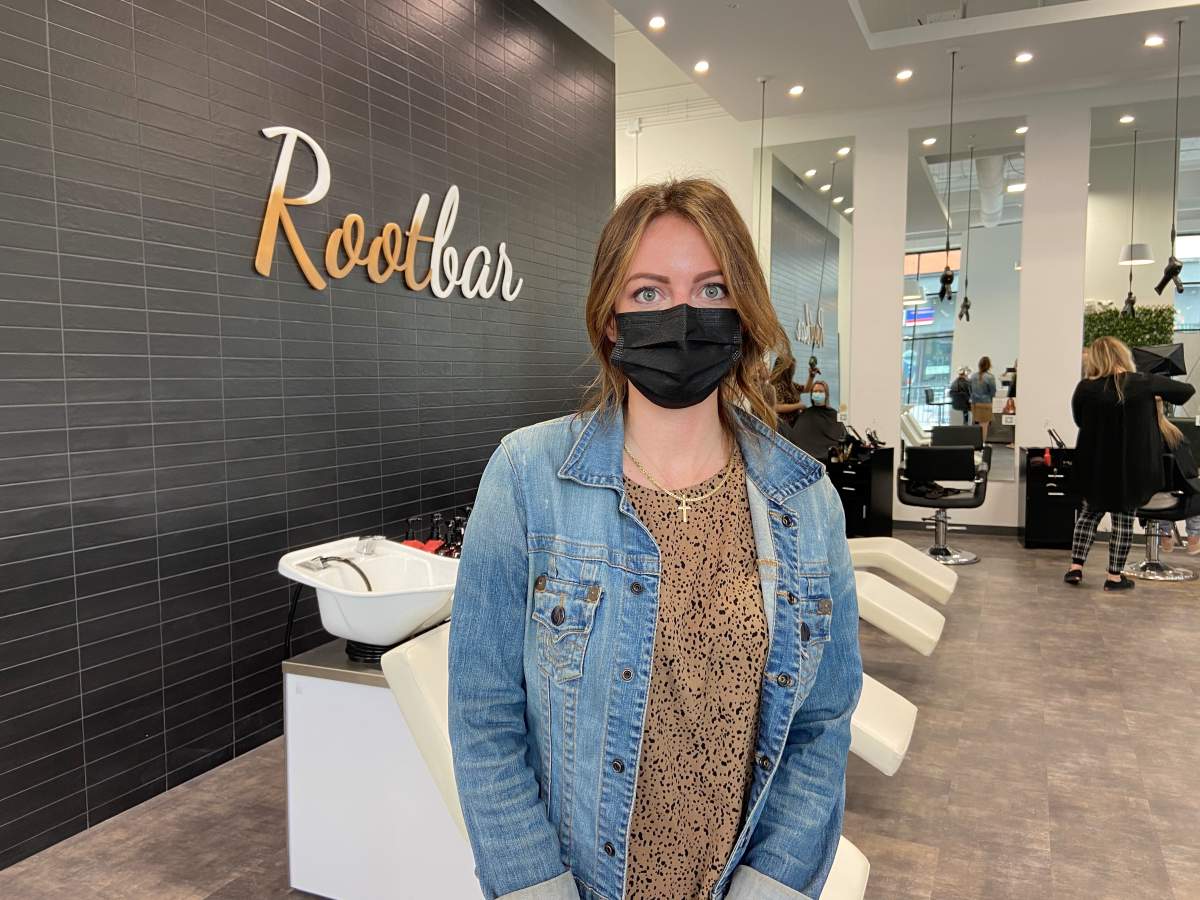Monday marks the first day of the third closure of personal wellness services and all in-person dining in Alberta, as a means of slowing the spread of COVID-19 in the province.

Premier Jason Kenney announced Tuesday that more public health measures would be implemented as Alberta has seen its highest case counts, hospitalizations and ICU admissions since the pandemic began.
Friday was the first day of a two-and-a-half-week shift for students in kindergarten to Grade 12 — as well as post-secondary schools — to online learning.
As of midnight Sunday, the remaining measures take effect: the closure of personal wellness services like hair salons and tattoo studios, the suspension of in-person dining on outdoor patios and a maximum customer capacity of 10 per cent in retail stores from shopping malls to smaller storefronts.

The restrictions are another blow to the already struggling industries, where business owners have had to constantly adapt to reduced capacity, new operating guidelines, adding protective barriers indoors, providing PPE for staff, and for some restaurants and bars, expanding their outdoor dining areas to comply with restrictions announced a month ago on April 6.
April Brown, owner of Rootbar Salon in southwest Calgary, said it’s “disappointing to always be considered non-essential,” when it comes to closures.
Brown opened her salon in January and said she was feeling optimistic that Albertans would all do their part and things would be OK.
She said it’s frustrating to see the government allowing establishments that don’t monitor customers for symptoms of COVID-19 to stay open, when she has to close her doors.
“It’s hard, because I can go to the mall with thousands of other people, I can go to IKEA, I can go to Costco, and the people aren’t distanced,” she said. “People aren’t screened or monitored before they get there which is what we do.
“They’re coming in and out and there’s no control, whereas here, it’s a controlled environment.”

In a statement Friday, Alberta Health spokesperson Tom McMillan said the ministry doesn’t have a breakdown by sector of viral transmission, so couldn’t provide data on the spread of COVID-19 in settings like hair salons.

Get weekly health news
“These businesses are closing to help limit as many in-person interactions as possible,” he said.
“Personal services like hair salons have worked incredibly hard to protect customers.
“Unfortunately, these activities involve more prolonged close contact between individuals, which can increase the risk of transmission.”
McMillan said the decisions on restrictions were made based on “14 months of evidence in Alberta, across Canada and around the world.”
“After more than a year of this pandemic, there is significant evidence and literature about how the virus spreads and the risk of transmission.”
Brown said the many changes have been emotionally and financially taxing for her and her new business, as well as her employees, who have families, mortgages and responsibilities that are put in a risky spot when they lose employment. The staff also work long hours in the days leading up to a closure to fit in as many clients as possible.
Brown’s applied for provincial grants, but said they’re still under review and she’s waiting for a response. As she waits, she’s cut back on expenses so she can pay the bills when the doors are closed.
For Shelley Breitkreitz, who’s been a hairstylist for 30 years, the closure came at a particularly trying time, as she just bought a home on Monday.
She’s had money to fall back on, thanks to lessons learned from her father, but she’s looking at other options to stay afloat heading into this next hiatus.
“You just have to be resourceful,” she said. “But it does take a toll on you.”

Breitkreitz has leaned on her daughter, who lives with her and has a job, for some help with things like groceries.
She said she loves a good challenge, but thinks “we are being pushed to our limits.”
“But I also think because we are strong, we will succeed. But it is frustrating,” Breitkreitz said.
“At the end of the day, you have to put a smile on your face and you try to make everyone who comes through the door feel beautiful and happy and they leave not worrying about what’s happening at the moment.”
McMillan said the government knows the restrictions “are disruptive to many businesses, but we must bend down the curve one last time.”
In addition to the restrictions imposed on businesses in Alberta, places of worship will have their attendance capped at 15, with only 10 people allowed at funerals.
Outdoor gatherings have been reduced from 10 to five, and Kenney said it was strongly recommended that people limit those outdoor gatherings to two family cohorts.
Any workplace where there’s been transmission of three or more cases is also required to close for 10 days, with the exception of work camps and essential and critical services.
Municipalities or areas with less than 50 cases per 100,000 people and with less than 30 active cases will be exempt from some of the restrictions.












Comments